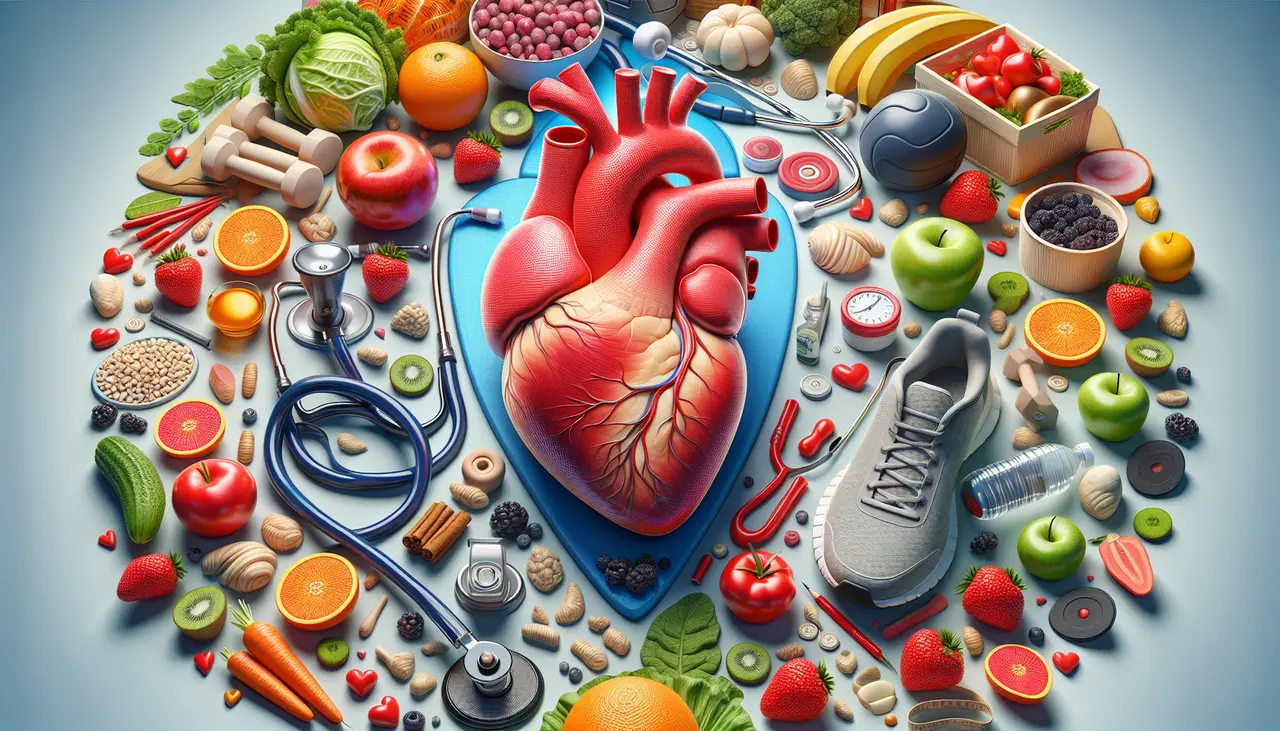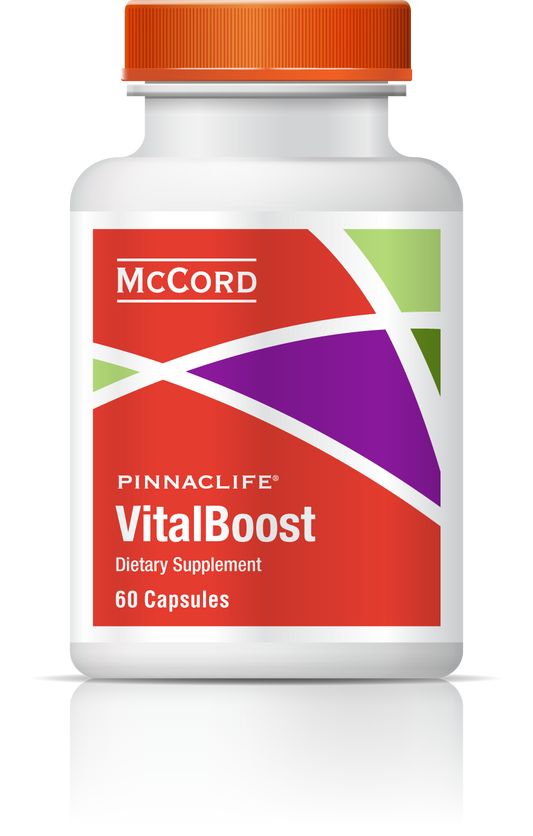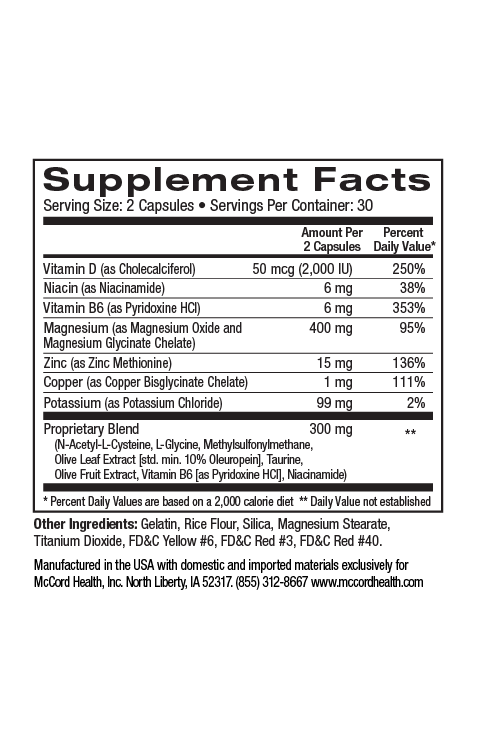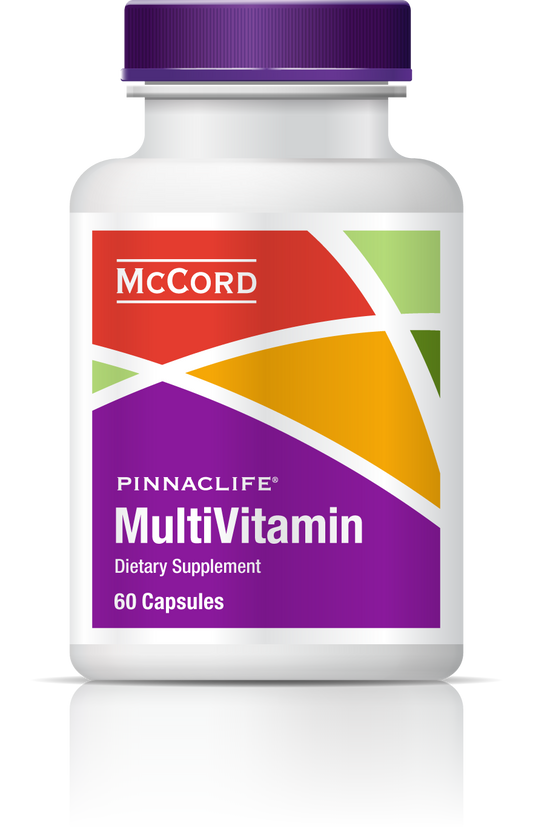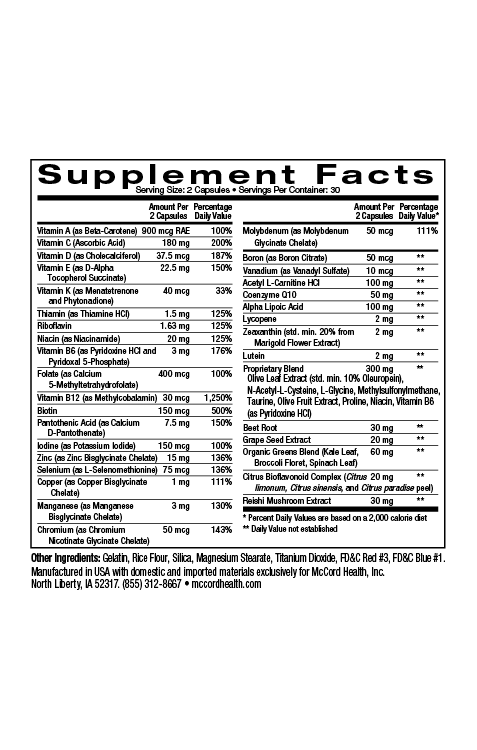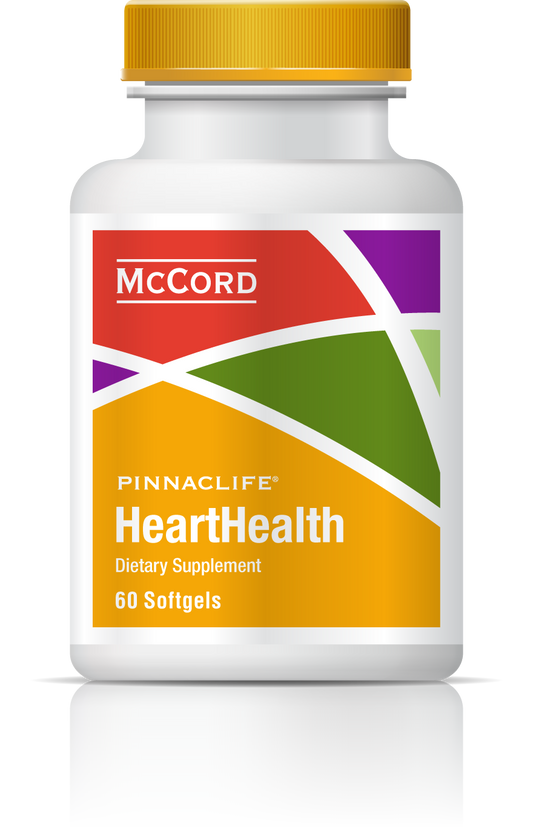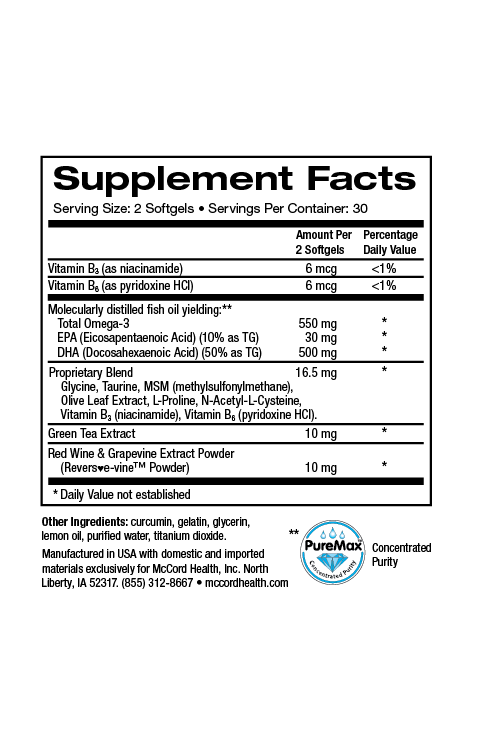Incorporating the right heart supplements into your daily routine can transform your overall health. With the abundance of choices available, it might be challenging to pinpoint which ones truly hold the key to a healthier heart. Join us as we explore twelve supplements that can push your heart health to new heights.
1. Omega Fatty Acids for Heart Protection
Omega-3 fatty acids, found in fish oil, have long been celebrated for their role in maintaining heart health by reducing inflammation and lowering triglyceride levels. A comprehensive analysis revealed that these fatty acids can dramatically lower the risk of various cardiovascular events. Specifically, omega-3s are known to improve levels of HDL, or good cholesterol, which fosters better heart health. To incorporate omega-3s naturally, consider adding more fatty fish to your diet. But let’s face it, not everyone can do this consistently. That’s where supplements come in as a convenient alternative. Lifeforce Omega is designed to maximize absorption, amplifying your body’s intake of EPA and DHA.
The beauty of omega-3 fatty acids lies in their multi-pronged approach to protecting heart health. They not only help minimize chronic inflammation, a significant contributor to atherosclerosis, but they also work wonders in lowering blood pressure. Studies also indicate that these fatty acids play a vital role in alleviating arrhythmias, particularly in those already diagnosed with heart diseases. With these benefits, omega-3 supplements like Lifeforce Omega can serve as a crucial addition to your heart health routine. However, the effectiveness of these supplements can vary, requiring a commitment to consistently engage in incorporating them into your diet over time.
2. Coenzyme Q for Cardiac Support
Coenzyme Q10, or CoQ10, plays an essential role in the production of energy at the cellular level, making it particularly beneficial for heart health. This enzyme has shown promise in treating heart failure and improving symptoms linked to it by enhancing the heart’s pumping capacity. A significant reason for this is CoQ10’s ability to act as a powerful antioxidant. As an antioxidant, CoQ10 absorbs and neutralizes free radicals, protecting the heart from oxidative damage.
Statin medications, while effective in managing cholesterol levels, are notorious for depleting CoQ10 levels in the body. Supplementing CoQ10 could potentially counteract this depletion, making it a wise choice for individuals undergoing statin therapy. Evidence shows that it may also aid those with a high risk of heart disease due to genetic predispositions. For optimal results, consider taking CoQ10 supplements with food, as dietary fat can help the body absorb it more efficiently.
3. Magnesium’s Role in Heart Rhythm
Magnesium is an unassuming mineral with a significant impact on heart rhythm stability and overall health. Notably, it serves as a natural relaxant for your cardiovascular system, maintaining a steady heartbeat. Individuals experiencing arrhythmias or high blood pressure can particularly benefit from ensuring adequate magnesium intake. Legion Athletics Sucrosomial Magnesium provides a highly absorbable form of magnesium, ensuring your heart receives the support it needs.
Data shows that magnesium facilitates over 300 enzymatic processes in the body, emphasizing its necessity. Furthermore, low magnesium levels are associated with heightened risks of heart disease and complications like atrial fibrillation. Given the prevalence of magnesium deficiency in diets today, supplements like Legion Magnesium can be extremely effective. Remember, while magnesium supplements are highly beneficial, it’s also crucial to include dietary sources like nuts, seeds, and leafy greens in your meals.
4. Harnessing the Power of Garlic Extract
Garlic extract is a time-honored heart supplement renowned for its ability to reduce cholesterol and blood pressure levels, offering a dual-action advantage for cardiovascular protection. These properties primarily stem from a compound in garlic known as allicin, which releases upon crushing or chopping garlic. Allicin enhances blood vessel flexibility and improves circulation, creating a more robust heart health profile.
In addition to these benefits, garlic extract has sedative effects on the nervous system, contributing to stress reduction and indirectly supporting heart health. By minimizing stress, garlic extract reduces its impact on hypertension and other heart-related conditions. Consistent use of garlic extract supplements can provide a natural boost to your body’s defense mechanisms against chronic heart diseases, fortifying your wellness routine.
5. Antioxidant Benefits of Vitamin E
Vitamin E serves as a potent antioxidant that combats oxidative stress, a silent precursor to heart disease. This vitamin works diligently to neutralize free radicals in the body, minimizing the damage they can inflict on heart cells. By reducing oxidative stress, Vitamin E can help prevent the narrowing and hardening of your arteries, offering a preventative approach to heart health management.
In recent studies, Vitamin E supplementation has shown promise in reducing markers of inflammation, another key player in heart disease progression. A consistent intake of Vitamin E-rich foods, like nuts and seeds, alongside a quality supplement, may offer synergistic benefits extending beyond cardiovascular protection to include overall better health. However, it’s essential to engage with a healthcare provider when integrating Vitamin E into your regimen, especially if you are on anticoagulant medications, to avoid potential interactions.
6. The Total Heart Support of Resveratrol
Resveratrol, a compound found abundantly in red grapes and wine, is believed to afford protection for the heart through its wide range of cardiovascular benefits. This polyphenolic compound boosts the levels of high-density lipoprotein (HDL), the good cholesterol, contributing to lower levels of low-density lipoprotein (LDL) and triglycerides. Its antioxidant properties further shield the heart by reducing oxidative stress.
Research associating resveratrol with better heart health often refers to its ability to improve the lining of blood vessels and promote relaxation of arterial walls. This mechanism may reduce hypertension and contribute to better blood flow. As this heart supplement continues to gain popularity, the science behind it becomes increasingly compelling, although moderation is key. Over-consumption, especially like in wine, can negate its benefits.
7. The Cholesterol-Lowering Effects of Plant Sterols
Plant sterols, naturally occurring compounds found in several vegetables, have a fascinating ability to lower LDL cholesterol levels, often dubbed as the ‘bad’ cholesterol. This heart supplement works by inhibiting cholesterol absorption in the intestines, consequently lowering total cholesterol levels in the blood.
Individuals taking plant sterol supplements have experienced a substantial decrease in cholesterol levels, contributing dramatically to better heart health. Studies have shown that taking 2-3 grams of plant sterols per day can reduce LDL cholesterol by about 10%. Adding plant sterols to your diet or supplementing them can transform your health routine, promoting long-term cardiovascular wellness. Pair this supplement with a diet rich in whole grains, legumes, fruits, and vegetables for even better results.
8. Folic Acid’s Contribution to Heart Wellness
Folic acid, a B-vitamin, plays a critical role in reducing levels of homocysteine, an amino acid linked to an increased risk of heart disease. Elevated homocysteine can lead to endothelial damage, resulting in plaque build-up and artery hardening. By lowering homocysteine levels, folic acid acts as a safeguard for your cardiovascular system.
Integrating folic acid supplements not only helps manage homocysteine levels but also supports overall good health. Additional benefits include boosting red blood cell production and aiding cognitive function. To maximize the benefits of folic acid in a heart-focused lifestyle, it’s best combined with a balanced diet rich in leafy greens, citrus fruits, and legumes.
9. The Heart-Calming Effects of Hawthorn
Hawthorn, an herbal remedy historically used to treat heart ailments, is revered for its soothing influence on the heart. Rich in antioxidants, hawthorn can dilate blood vessels, effectively reducing blood pressure and anxiety. These effects make it a desirable supplement for individuals with mild to moderate heart failure or those seeking preventative care.
Studies indicate that hawthorn may enhance cardiac output, improve exercise tolerance, and minimize shortness of breath. Historically, it has been utilized to support emotional well-being, aligning physical and mental health. Whether you’re dealing with stress or seeking heart health benefits, hawthorn is a supplement worth exploring. It’s essential, however, to consult with a healthcare provider to ensure it aligns with any current treatments you might be undergoing.
10. Incorporating L-Carnitine for Energy
L-Carnitine is a vital supplement recognized for enhancing energy production, and by doing so, potentially benefiting heart health. This nutrient plays a prominent role in transporting fatty acids into the mitochondria, the powerhouse of cells. It enables the heart and muscles to utilize fatty acids efficiently, reducing the workload of the heart.
In addition to energy production, L-Carnitine has been shown to improve circulation, boost endurance, and support recovery post-exercise. These traits make it particularly beneficial for both athletes and those recovering from cardiac events. Incorporating L-Carnitine into your regimen could support heart function and help improve your overall energy levels.
11. Benefits of Niacin for Cholesterol
Niacin, or vitamin B3, has earned its place as a heart supplement due to its capacity to increase high-density lipoprotein (HDL) cholesterol while simultaneously reducing triglycerides, low-density lipoprotein (LDL), and small dense LDL particles. Vitamin B3 may safeguard against heart disease by maintaining favorable cholesterol levels.
12. The Healing Properties of Turmeric
Curcumin is the active compound found in turmeric, which is praised for its powerful anti-inflammatory effects. This compound does wonders in reducing inflammation-induced cardiac damage and may improve vascular function.

